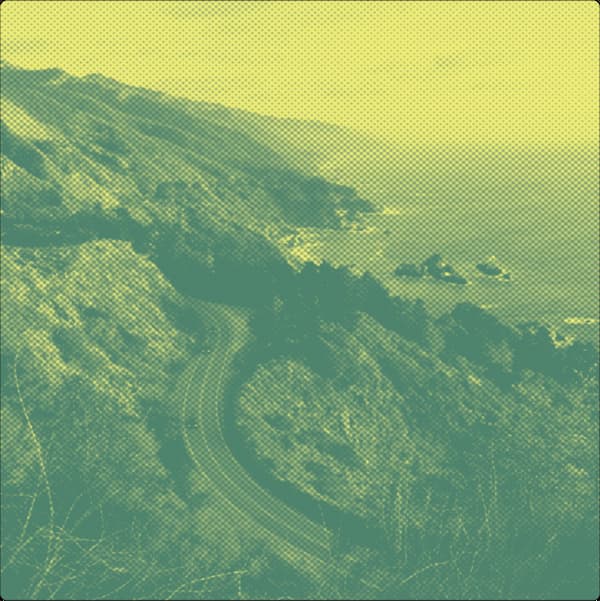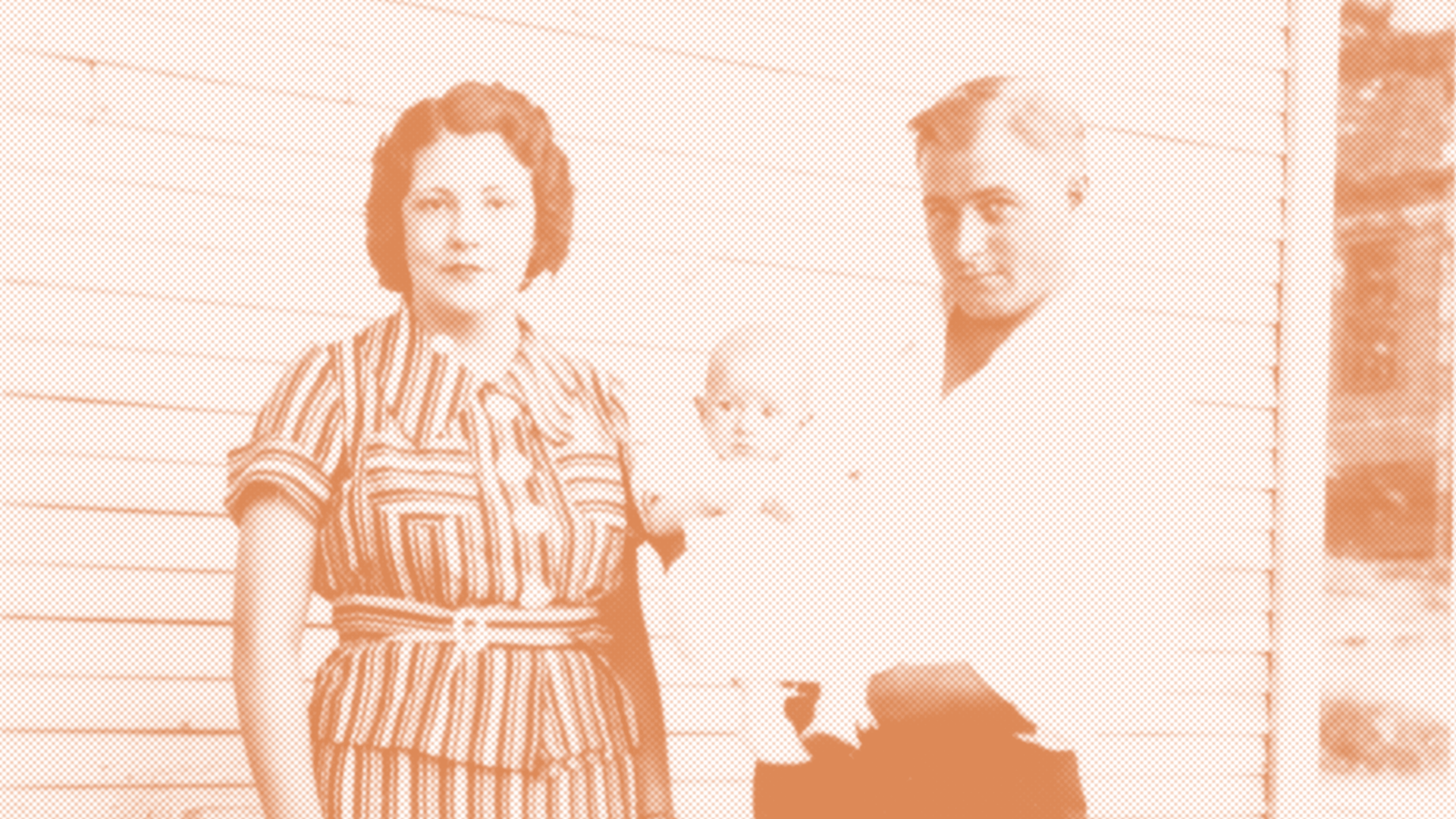By Geeta Dayal
Terry Riley's Early Years in California
How a pioneer of minimalism got tuned-in from way out west.
The legendary composer Terry Riley was born in the small town of Colfax, California in 1935 and spent most of his life in the state before relocating to Japan in 2020. Much has been written about his immensely varied music – a sprawling, inspirational body of work that spans six decades – but little has been written about his very early days. Here, he gives a rare glimpse into his childhood in the Golden State – during the turbulent times of World War II – in a long, wide-ranging interview.
Riley has Irish-Italian heritage. His mother’s side of the family were Italian immigrants, and his grandfather came to Colfax to work with Southern Pacific Railroad after arriving at Ellis Island. Riley’s father, who was from an Irish family in Ohio, faced major hardships in his early life. Like the composer Harry Partch, Riley’s father criss-crossed the nation by riding the rails on boxcars. He eventually landed in Colfax, where he met Riley’s mother.
Riley became attuned to music at a very early age. “My mother has told me a lot of things,” he says. “She said that I started singing songs off the radio when I was one year old.” As a small child, Riley sang popular songs like “Pennies from Heaven.” Soon, he became entertainment in the small town. “They would take me to the local bar in Colfax and they would set me up, and I would sing songs to entertain people at the bar while they were drinking,” he recalls. “I was kind of a big attraction when I was little.”
In Colfax – where he lived until the age of four – his knowledge of music came entirely from the radio. “The radio was really my connection to music when I was growing up in Colfax,” he says.
I remember listening to the radio and crying because I was so moved by popular songs I was listening to on the radio."
His family moved further north to Redding, California, where he encountered music lessons for the first time. “For some reason they got a violin teacher for me,” he remembers. When I was about five, I started studying violin. I think I studied for about six months or a year and then the War broke out – World War II. I do remember hearing that speech by Roosevelt on the radio, the Japanese day that will live in infamy. I remember asking my dad, ‘What is war?’ He tried to explain to me what was happening.”
The Riley family then moved yet again – this time to Southern California. “The next day, my dad flew to Los Angeles and joined the Marines,” Riley remembers. “He felt very patriotic to get involved in war. So my violin lessons ended because we had to go to Los Angeles.”
During the war, Riley lived with his Italian grandmother on South Normandie Street, in the neighborhood now known as Koreatown. “My grandmother liked to sing operas,” he remembers. “She spoke fluent Italian . . . she would belt these operas really loud. We would listen to the Hit Parade on the radio together. My uncle was a professional bass player . . . one of my cousins, he was a good improviser of piano, he was playing classical tunes and improvising on the piano. I was influenced by him. I was about eight years old by that time.”
Riley’s mother was working in a defense plant, making airplane parts for the war. “When I got out of school, I would come home and I would jump on buses after school, and I would ride buses all around LA,” Riley remembers. “My mother didn’t know I was doing this – to get on the bus and ride, and get home before my mother got home.” His musical imagination was piqued. They lived near the glitzy supper club in Los Angeles known as the Cocoanut Grove, inside of the lavish Ambassador Hotel on Wilshire Boulevard, which hosted concerts by Frank Sinatra, Nat “King” Cole, and other high-profile live acts.
Riley remembered being moved by popular standards sung by Sinatra and others.
'South of the Border down Mexico Way’ – that was an epiphany when I heard that,” Riley says. “It really made me cry – it ignited my soul in some way. Music that makes you long for something, that you can’t explain what it is."
His time in the big city of Los Angeles was short-lived. Soon the family went back up north, this time to the tiny farm town of Weimar, a few miles from Colfax, where his grandfather lived. “When I came to Weimar, we got a piano. When I was eight years old, a piano teacher whose husband owned a chicken farm near Colfax, that’s when she would give me some kind of simplified classical piece, but I still hadn’t heard up until that point any concerts. I just wasn’t exposed to it – all my experience was coming from radio. It was all there was. There was no TV. Radio was it.” He listened to music, but also devoured radio dramas, and comedy shows by Jack Benny and others. After Weimar he went back to Redding, when his dad returned from the war.
In Redding, he began to learn some classical music, like Bach and Beethoven. But he faced peer pressure. In Redding in the late 1940s and early 1950s, he recalls, “it was kind of a logging roughneck town. You were considered a sissy if you played music . . . I would play sports [and] I would play piano. I had to be an athlete too.” He learned about new music from dispatches on the radio. Through magazines, he learned about jazz, but there wasn’t much in the way of jazz in Redding. “My folks subscribed to Life magazine. Dizzy and Charlie Parker, talking about bebop. I remember keeping this magazine with me and trying to find out about what bebop was.”
Riley played music all through high school, singing in choir and playing piano. He met other musicians who inspired him. “I met this wonderful musician, older than me, Duane Hampton,” he remembers. “Duane was the first person who took me under his wing and gave me lessons to work harder at piano, giving me important pieces of classical literature, Debussy and Bartok – my first taste of new music, early 20th century music.”
He yearned for a life outside of Redding. “I was 17, I got a job and was working at a supermarket. I wanted to be independent. I didn’t feel connected to my home anymore, then my dad moved to South Carolina around that time. I finished high school in South Carolina, I got to experience the South – the kind of racism, the separation. There was also a real beauty in the South that was moving to me, the nature down there. I came back to Redding and came to junior college for a bunch of years. . . I was still studying with Duane Hampton. Ralph Wadsworth, a clarinet teacher in Redding, would play records of all kinds of music that I hadn’t heard before. He became a good friend of mine and a mentor too. . . Ralph made me want to be a musician, listening to Francis Poulenc. I became really addicted to Poulenc’s music around this time . . . [and] Debussy, even “Clair de Lune,” it was my first feelings of what Eastern music sounded like.”
Riley came to San Francisco in his early 20s. He went to San Francisco State University, studying music composition under Robert Erickson with a now-legendary group of fellow students including Pauline Oliveros and Loren Rush. “All these really amazing young budding composers, who had all done more music than me, more writing than me,” Riley remembers. “A kid from the sticks . . . surrounded by people my age who had lived in cities. That was a really exciting period.”
Oliveros co-founded the San Francisco Tape Music Center in 1960, where Riley would often perform his music. He premiered his groundbreaking piece “In C” – a foundational text for what came to be known as Minimalism – at the Tape Music Center in 1964. He also began experimenting with electronics, using a Wollensack tape machine. “That was when I was experimenting with tape loops and sound on sound,” he says. “You were so limited with what you could do with a single monophonic tape recorder. You could only do tape loops, tone generators, a limited budget of what you could do. What I was doing was mainly limited by my resources at that time. I started doing electronic music because I was working with Anna Halprin’s dance company, making music for her dance company.”
Riley, now 88 years old, looks back at his many decades in California with great fondness. “A lot of it has been just being luck to run into some really amazing people,” he says. “It wasn’t to a particular effort of my own. I have just been guided somehow, to be exposed to some really amazing musicians and minds.”
__________
Geeta Dayal is an arts critic and journalist based in Los Angeles who has covered experimental music for the New York Times, The Guardian, Rolling Stone, Wired, NPR, Slate, Artforum, and many other publications. She is the author of Another Green World, a book on Brian Eno, and is at work on a new book about music.


